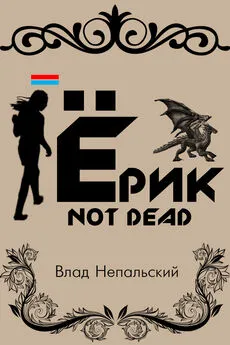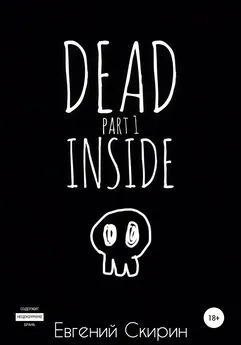Ed Lacy - Dead End
- Название:Dead End
- Автор:
- Жанр:
- Издательство:неизвестно
- Год:неизвестен
- ISBN:нет данных
- Рейтинг:
- Избранное:Добавить в избранное
-
Отзывы:
-
Ваша оценка:
Ed Lacy - Dead End краткое содержание
Dead End - читать онлайн бесплатно полную версию (весь текст целиком)
Интервал:
Закладка:
“When do you figure this joint was last used as a hide-out, Doc?”
“Hard to say—perhaps ten minutes before we pulled in. Who knows? Back during Prohibition this was a blind pig and a popular hiding place for the big shots. Molly even had girls stashed away for the boys. The last I know of anybody using this was Baldy Harper, who was wanted for a knife party back in 1949—or was it 1951? I wasn't on the case but—”
“The hell with it. Let's get back to the suitcases.”
“Sure.” He slapped me on the back, hard. “Don't get your nerves up, kid. It's only paper.”
“But a million bucks is so much paper.” I headed for the stairs, and Doc followed me, carrying the clothing.
We looked through the kitchen, scattering roach patrols. The bugs must have been a frantic lot, for the cheap bag didn't have any food around—a few cans of beans, stale coffee, a can of milk that smelled awful. The odd part was, she had a spotless refrigerator, and completely empty. Not even a brew. Sitting on an unstained part of the kitchen table, I asked, “Now what, mastermind?”
Like Nate, Doc never got rattled. He laughed at me. “It's simple, S.O.P.: We keep sitting tight.”
“The only think tight will be our guts—we have to eat.” And Bucky boy, you well know how much I enjoy eating. We shall eat very well, too.”
“How? Even the roaches are having it rough.” I glanced at my watch, the same one Nate had given me for graduation years ago. The boxer's arms said it was ten to six. “It's damn near suppertime now. You going to saute the bugs, or maybe roast those old clothes?”
“I wish you'd put that childish watch away. Time has little meaning for us now. A timeless world is one of man's goals. We are fortunate to—”
“Okay, Doc, but we can't eat words. Exactly how are we going to eat so 'well'?”
He patted the clothes he had tossed on a chair. “I may be fairly well known in this end of town; I used to have a post here when I was a harness bull. That's how I knew about Molly and this hide-out. While that was over sixteen years ago, it would still be far too risky for me to venture outside. But you can go out and buy—”
“Me?” I jumped off the table. “You're talking like a man with a paper head! Remember the whole damn force is looking for the both of us!”
Doc nodded, that wise tight smile on his unshaven puss, as though I'd just made a funny. “I know. The beat cop most certainly has a general description of you: young, stocky, black hair, well-dressed.” He pulled out the bottle of hair dye, threw it on top of the old clothes. “Disguise has become a lost art among you younger detectives. Look, as soon as it's dark a blond, middle-aged man in worn work clothes with a blanket around his middle to make him look stout will easily be able to walk the two or three blocks it will take you to find a delicatessen. The nearest one is run by an old German, a very clean store. You'll be perfectly safe. You won't buy much: beer, a few packs of butts, sandwiches. Ordinary staples. Granted it's a chance, but a very little one. It's comparatively simple to make a young fellow look old, but to make a man my age look young—well, it would be much more of a chance if I tried it.”
“I'd have to be crazy to buy that!”
“Bucky, Bucky, you sound as if I was throwing you to the lions. We're in this together all the way. Do you think I'd let you take a real risk? Hell, if you got caught they'd beat this hiding place out of you in no time, and I'd be collared too.”
“But Doc, going out... seems such a dumb thing.”
“Okay. We can use up these beans tonight, but tomorrow we'll have to eat. There's little point in our being the richest men who ever starved to death. I told you before, Bucky, we have to meet things as they come up. Now we have to cross the food bridge, just as a half hour ago we had to take care of Molly. Look, I know my business. I'll fix you up so you wouldn't recognize yourself in a mirror.”
“Well... I guess there's no sense in us arguing. We do have to eat, but... Doc, what are we hanging around this house for, giving them a chance to close in on us?”
“This is the smartest move we ever made, our salvation. Kid, you've never been through a dragnet; you don't know what it's like. The tightest man hunt in police history surrounds this city right this minute. Not only our police force, but the F.B.I. and the state troopers have undoubtedly thrown in hundreds of extra men—every guy anxious to make the big collar. Two men carrying bags couldn't reach the highway, or even get within shouting distance of the railway station or bus terminal. We have to wait a few more days, maybe a week or two, to give them time to relax the dragnet, make everybody feel positive we've left town. Time is on our side, not theirs. Suppose we have to wait a month, even a year. The pay is right and—”
“A month!” I exploded. “I'll go stir nuts. Not even a radio in the house.”
“Take it easy, Bucky boy, learn to relax. You must have heard of the St. Valentine's Day massacre in Chicago—way back?”
“What's that to do with us?”
Doc sat on a kitchen chair, stretched his legs. “The real head of the mob, the joker they were after, was in that garage but they didn't kill him. Matter of fact, he died several years ago—in bed. But the killers had seen him go into the garage and they kept an around-the-clock watch on the garage building for over six months, after the massacre. This mob leader was smart, he stayed in that garage, in hiding, for eight months —and lived.”
“You mean we might have to spend that much time here?”
“Maybe. Or somebody like a building inspector might come around ten minutes from now and we'll have to make new plans.” Doc felt in his pockets, then held out his hand. “Give me a butt—and some fire. Suppose we do stick here for a half a year—isn't a million bucks worth it? What's a few months, a year, out of our lives? It's simple if you learn how to unwind. That's the secret of a long life.”
“Come on, Doc, you can talk plainer than that,” I said, giving him my last cigarette and a match.
Winking at me over a cloud of smoke, he said, “I keep telling you to remember the one big advantage we have in this setup— we didn't plan this!”
“So what's the big fat difference?” I asked, watching my last butt working in the middle of his dirty face.
“When you've done police work as long as I have, you'll—”
“We're not exactly the police in this case.”
Doc showed me his neat teeth—and they looked dirty, too. And he was the character who always carried a little can of tooth powder, insisted on rubbing his teeth clean after eating. He said, “That's not as much of a wisecrack as you seem to think, Bucky. When you spin a coin, both sides are affected. Now stop shooting off your big mouth for a moment and listen. It's on the planning level that most capers strike a reef. Punks make a lot of plans beforehand, with no way of knowing what the actual realities of the situation will be. They plan a deal to go a certain way; if it goes another, they're sunk. In the pattern of crime, plans equals mistakes. Also, plans can become known, and the more you plan the more errors you overlook. What I'm telling you is this: Without making plan one we stumbled over a million dollars. Any errors we make will come from facing the problems as they arise. I believe that with any sort of break we'll get out of this dump, then out of the country, to enjoy the money.”
“But how, Doc, how?”
He blew smoke at a roach crossing the table. “Don't be so impatient. I don't know—I just told you we haven't any set plans.”
“Damn it, we have to plan our next step!”
“Why? Sometimes it's best to stand still, not take a step. Give me time, Bucky—I'll think of an out. I always have. Here, since you're so in love with plans, here's a few precautions. We'll keep to our hidden room most of the time—less chance of anybody spotting us from the windows. Somebody rings the doorbell, we don't answer. Every night, for a half hour or so, we'll leave the kitchen light on, and the light up in her bedroom.” Doc crushed his cigarette on the table, wasting half of the butt. He stood up and yawned. “For the present our immediate steps are simple—get some sack time and stop worrying.”
As we started for our room, he told me, “Shut your eyes, Bucky. You want to be doing something, then start memorizing where the furniture is. Never know when we might have to move in the dark.”
I followed him to our room, keeping my eyes open. He closed the secret “door,” then snapped on the light. We stretched out on our cots. I picked up the paper while Doc went to sleep. But I couldn't read—the pictures of us already looked like mug shots. I dropped the paper on the floor. There were a few spots of Molly's blood. Despite stomach wounds she really hadn't bled much. Would she have tried to kill us, take the dough, like Doc said? Seemed to me she would have gone for a possible reward, blown the whistle on us.
I got up and opened the “door.” There was a tiny John next to the kitchen. If this was such a hot hide-out, why didn't they think to build a toilet in the room? I washed up—there never had been any hot water—dampened some toilet paper then soaped it up, returned to our room. I was down on my knees trying to get rid of the bloodstains when I heard Doc chuckling. He said, “When the F.B.I. shot Dillinger down in front of a theater, they say people were sopping up his blood with handkerchiefs and newspaper for souvenirs.”
I didn't bother answering. Sometimes Doc's pearls of wisdom gave me a stiff pain. I couldn't get much of the blood off and when I went back to the bathroom I tried walking in the dim light with my eyes shut. I banged my knee.
Doc was sleeping again when I closed the “door,” snapped on the light. I sat on my cot, far too tense to sleep. I didn't like the idea of going out; it frightened me silly. But Doc was right, we had to eat—right now I wanted a drag, wanted it badly—and it had to be me. I didn't want to think about going out, tried to think of anything else. I glanced at the suitcases, but couldn't even concentrate on the money.
I stared at Doc's skinny back, envious of the way he could pound his ear. He wasn't asleep. He must have felt my eyes on him; he suddenly rolled over, told me, “Maybe that kid's watch of yours will come in handy after all. Wake me when it's eight o'clock. You have to leave before the stores close. I could go for a shrimp salad sandwich—on good German rye.”
Then he turned over again and really went to sleep.
I cursed him, to myself, for no reason. Stretching out on the cot, I glanced at the fighter on the watch face. The paint on his left shoe was peeling. It wasn't even seven o'clock. Crazy, how the watch upset Doc, or maybe amused him. Like Elma, he was always after me to buy a new one—had tried to give me an expensive, self-winding job.
I never told him why I had to keep wearing it. I guess I couldn't have put it in words. But I wanted to wear it. Judy never noticed it and Betty thought it was cute. Elma was mad because I... What was Elma doing now? How was she taking all this? Probably wishing she could get her mitts on me—and the money.
Elma knew about Nate giving me the watch, but she kept nagging me to throw it away. But then nagging was her way of life. Elma the lump. Would it have worked out okay if she hadn't had her insides taken out—that lousy operation?
Or was our marriage all wrong from the jump?
4— Elma
Читать дальшеИнтервал:
Закладка:
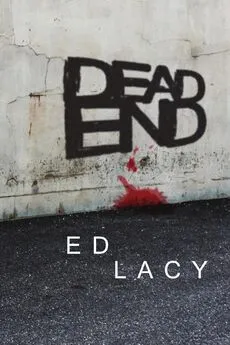

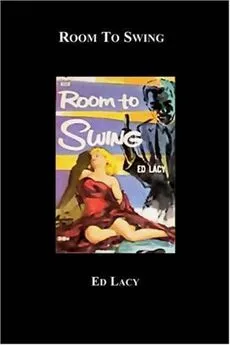
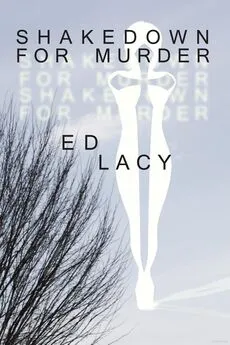
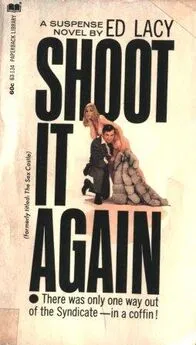
![Галина Романова - Лицензия на happy end [litres]](/books/1058996/galina-romanova-licenziya-na-happy-end-litres.webp)
